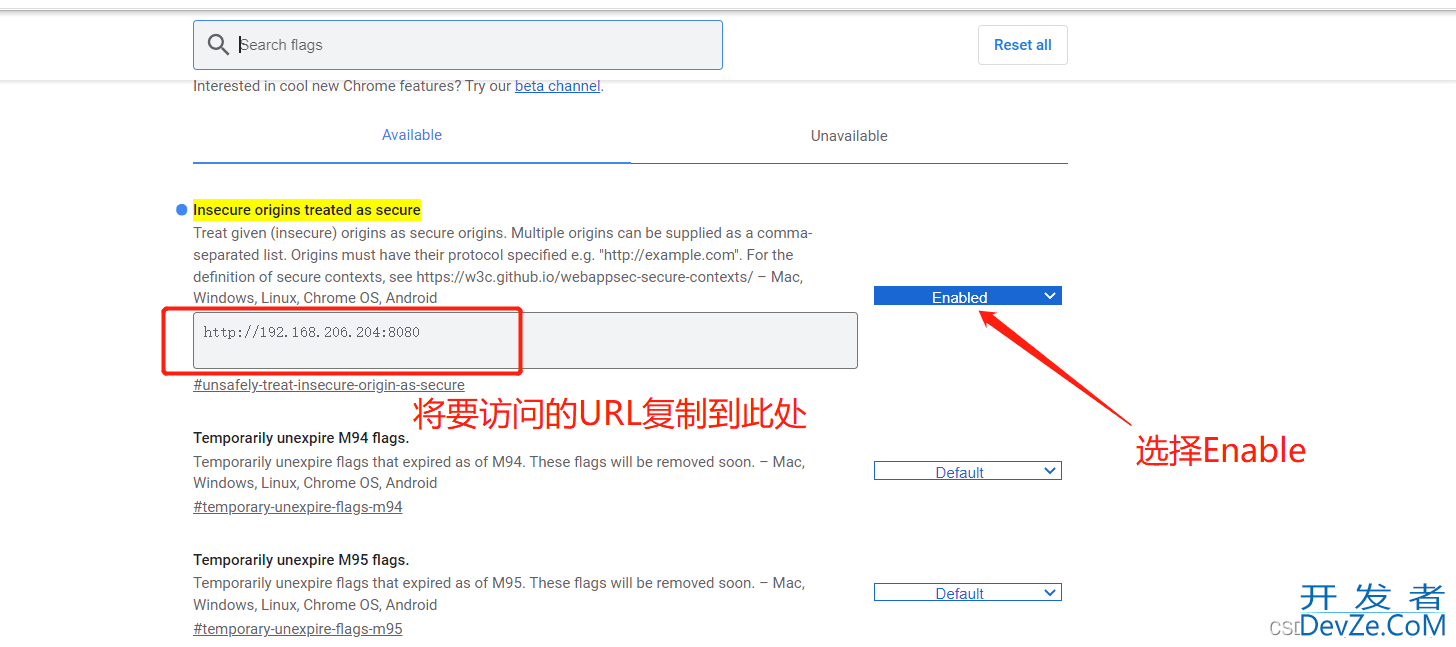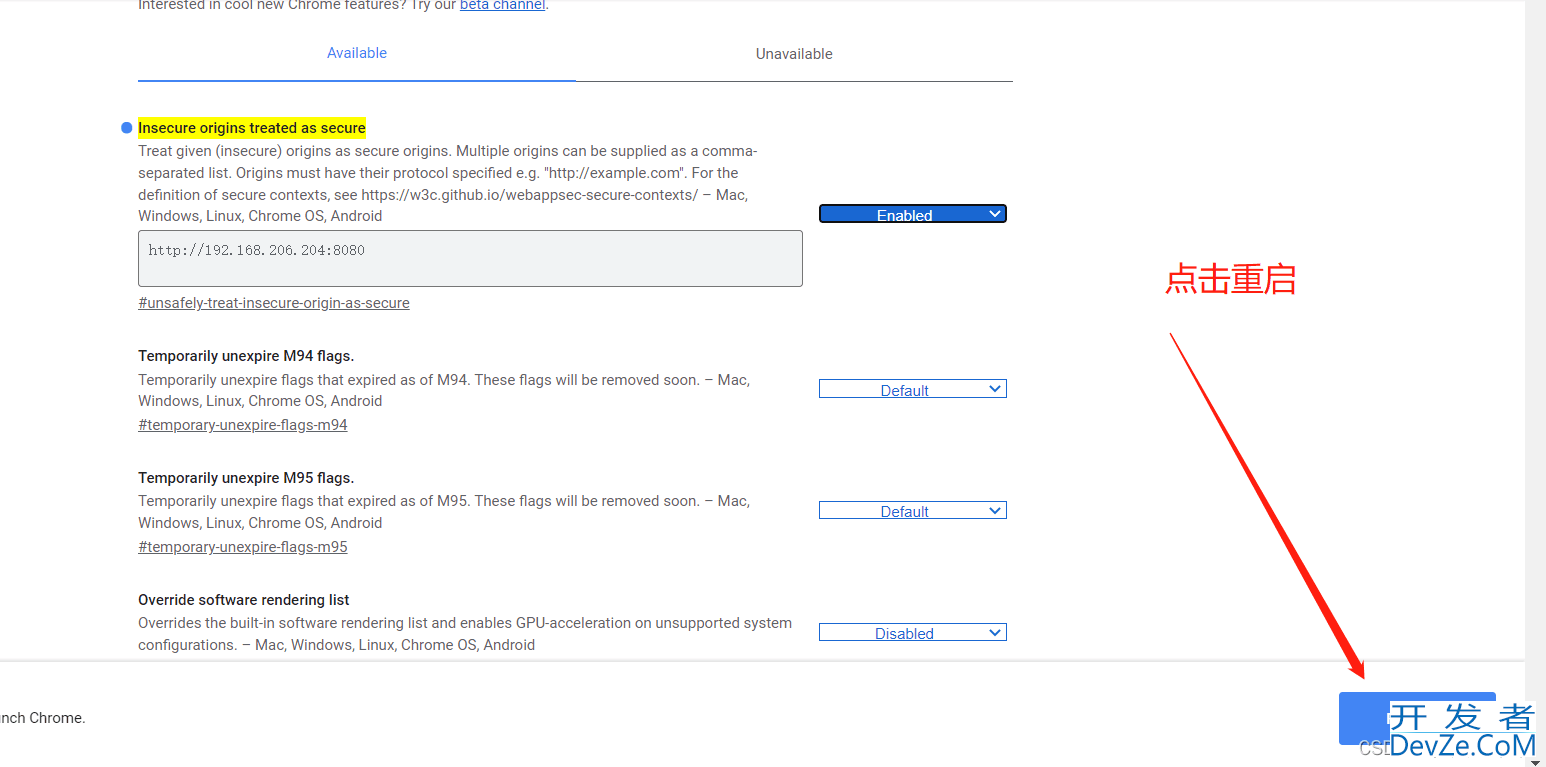WebSocket+Vue+SpringBoot实现语音通话的使用示例
目录
- 整体思路
- 注意事项
- vue代码
- Java代码
- 测试方法
整体思路
前端点击开始对话按钮后,将监听麦克风,获取到当前的音频,将其装化为二进制数据,通过websocket发送到webscoket服务端,服务端在接收后,将消息写入给指定客户端,客户端拿到发送过来的二进制音频后再转化播放
注意事项
由于音频转化后的二进制数据较大,websocket默认的消息传输大小不能被接收,所以需要通过 @OnMessage(maxMessageSize=5242880)注解进行调整
Vue代码
<template>
<div class="play-audio">
<el-button @click="startCall" ref="start">开始对讲</el-button>
<el-button @click="stopCall" ref="stop">结束对讲</el-button>
</div>
</template>
<script>
export default {
data() {
return {
ws: null,
mediaStack: null,
audioCtx: null,
scriptNode: null,
source: null,
play: true
}
},
methods: {
initWs1() {
//设置好友ID
let recipientId=localStorage.getItem('userId')=="2"?"1":"2";
this.ws = new WebSocket('ws://192php.168.206.204:8081/video/'+localStorage.getItem('userId')+"/"+recipientId)
this.ws.onopen = () => {
console.log('socket 已连接')
}
this.ws.binaryType = 'arraybuffer'
this.ws.onmessage = ({ data }) => {
console.log("接收到的数据--》"+ data)
// 将接收的数据转换成与传输过来的数据相同的Float32Array
const buffer = new Float32Array(data)
// 创建一个空白的AudioBuffer对象,这里的4096跟发送方保持一致,48000是采样率
const myArrayBuffer = this.audioCtx.createBuffer(1, 4096, 48000)
// 也是由于只创建了一个音轨,可以直接取到0
const nowBuffering = myArrayBuffer.getChannelData(0)
// 通过循环,将接收过来的数据赋值给简单音频对象
for (let i = 0; i < 4096; i++) {
nowBuffering[i] = buffer[i]
}
// 使用AudioBufferSourceNode播放音频
const source = this.audioCtx.createBufferSource()
source.buffer = myArrayBuffer
const gainNode = this.audioCtx.createGain()
source.connect(gainNode)
gainNode.connect(this.audioCtx.destination)
var muteValue = 1
if (!this.play) { // 是www.devze.com否静音
muteValue = 0
}
gainNode.gain.setValueAtTime(muteValue, this.audioCtx.currentTime)
source.start()
}
this.ws.onerror = (e) => {
console.log('发生错误', e)
}
this.ws.onclose = () => {
console.log('socket closed')
}
},
// 开始对讲
startCall() {
this.play = true
this.audioCtx = new AudioContext()
this.initWs1()
// 该变量存储当前MediaStreamAudIOSourceNode的引用
// 可以通过它关闭麦克风停止音频传输
// 创建一个ScriptProcessorNode 用于接收当前麦克风的音频
this.scriptNode = this.audioCtx.createScriptProcessor(4096, 1, 1)
navigator.mediaDevices
.getUserMedia({ audio: true, video: false })
.then((stream) => {
this.mediaStack = stream
this.source = this.audioCtx.createMediaStreamSource(stream)
this.source.connect(this.scriptNode)
this.scriptNode.connect(this.audioCtx.destination)
})
.catch(function (err) {
/* 处理error */
console.log('err', err)
})
// 当麦克风有声音输入时,会调用此事件
// 实际上麦克风始终处于打开状态时,即使不说话,此事件也在一直调用
this.scriptNode.onaudioprocess = (audioProcessingEvent) => {
const inputBuffer = audioProcessingEvent.inputBuffer
// console.log("inputBuffer",inputBuffer);
// 由于只创建了一个音轨,这里只取第一个频道的数据
const inputData = inputBuffer.getChannelData(0)
console.log("调用")
// 通过socket传输数据,实际上传输的是Float32Array
if (this.ws.readyState === 1) {
// console.log("发送的数据",inputData);
this.ws.send(inputData)
}
}
},
// 关闭麦克风
stopCall() {
this.play = false
this.mediaStack.getTracks()[0].stop()
this.scriptNode.disconnect()
}
}
}
</script>
java代码
webscoket配置类
package com.example.software.config;
import org.springframework.context.annotation.Bean;
import org.springframework.context.annotation.Configuration;
import org.springframework.web.socket.config.annotation.EnableWebSocket;
import org.springframework.web.socket.server.standard.ServerEndpointExporter;
/**
* @Description: websocket配置
*/
@Configuration
@EnableWebSocket
public class WebSocketConfig {
@Bean
public ServerEndpointExporter serverEndpointExporter() {
return new ServerEndpointExporter();
}
}
webscoket服务类
package com.example.software.service.webscoket;
import cn.hutool.core.map.MapUtil;
import cn.hutool.core.util.StrUtil;
import cn.hutool.json.JSONUtil;
import lombok.extern.slf4j.Slf4j;
import org.springframework.beans.factory.annotation.Autowired;
import org.springframework.stereotype.Controller;
import javax.websocket.*;
import javax.websocket.servekjFbLpWtior.PathParam;
import javax.websocket.server.ServerEndpoint;
编程客栈import java.io.BufferedInputStream;
import java.io.IOException;
import java.io.InputStream;
import java.nio.ByteBuffer;
import java.util.ArrayList;
import java.util.HashMap;
import java.util.List;
import java.util.Map;
import java.util.concurrent.ConcurrentHashMap;
/**
* @Author:wf
* @Date 2023/5/14 13:55
* 消息收发
**/
@Controller
@ServerEndpoint(value = "/video/{senderID}/{recipientId}")
@Slf4j
public class WebSocketServer {
/** 当前在线连接数。应该把它设计成线程安全的 */
private static int onlineCount = 0;
/** 存放每个客户端对应的MyWebSocket对象。实现服务端与单一客户端通信的话,其中Key可以为用户标识 */
private static ConcurrentHashMap<String, Session> webSocketSet = new ConcurrentHashMap<String, Session>();
/** 与某个客户端的连接会话,需要通过它来给客户端发送数据 */
private Session WebSocketsession;
/** 当前发消息的人员编号 */
private String senderID = "";
/**
* 连接建立成功调用的方法
* @param param 发送者ID,是由谁发送的
* @param WebSocketsession 可选的参数。session为与某个客户端的连接会话,需要通过它来给客户端发送数据
*/
@OnOpen
public void onOpen(@PathParam(value = "senderID") String param, @PathParam(value = "recipientId") String recipientId,Session WebSocketsession) {
System.out.println("人员-------**-------编号:"+param+":加入聊天");
System.out.println("盆友是:"+recipientId+"");
//接收到发送消息的人员编号
senderID = param;
System.out.println("senderID:"+senderID);
//设置消息大小最大为10M,这种方式也可以达到效果,或者使用下面的 @OnMessage(maxMessageSize=5242880)
//The default buffer size for text messages is 8192 bytes.消息超过8192b,自动断开连接
// WebSocketsession.setMaxTextMessageBufferSize(10*1024*1024);
// WebSocketsession.setMaxBinaryMessageBufferSize(10*1024*1024);
//加入map中,绑定当前用户和socket
webSocketSet.put(param, WebSocketsession);
//在线数加1
addOnlineCount();
}
/**
* 连接关闭调用的方法
*/
@OnClose
public void onClose() {
if (StrUtil.isNotBlank(senderID)) {
//从set中删除
webSocketSet.remove(senderID);
//在线数减1
subOnlineCount();
}
}
/**
* 收到客户端消息后调用的方法
*
*设置最大接收消息大小
*/
@OnMessage(maxMessageSize=5242880)
public void onMessage(@PathParam(value = "senderID") String senderID ,@PathParam(value = "recipientId") String recipientId,InputStream inputStream) {
System.out.println(senderID+":发送给"+recipientId+"的消息-->"+inputStream);
try {
byte[] buff = new byte[inputStream.available()];
inputStream.read(buff, 0, inputStream.available());
Session session = webSockjFbLpWtioketSet.get("2");
synchronized (session) {
//给2号发送
session.getBasicRemote().sendBinary(ByteBuffer.wrap(buff));
}
} catch (Exception e) {
e.printStackTrace();
}
}
/**
* 发生错误时调用
*
* @param session
* @param error
*/
@OnError
public void onError(Session session, Throwable error) {
error.printStackTrace();
}
/**
* 为指定用户发送消息
*
* @param message 消息内容
* @throws IOException
*/
public void sendMessage(String message) throws IOException {
//加同步锁,解决多线程下发送消息异常关闭
synchronized (this.WebSocketsession){
this.WebSocketsession.getBasicRemote().sendText(message);
}
}
/**
* 获取当前在线人数
* @return 返回当前在线人数
*/
public static synchronized int getOnlineCount() {
return onlineCount;
}
/**
* 增加当前在线人数
*/
public static synchronized void addOnlineCount() {
WebSocketServer.onlineCount++;
}
/**
* 减少当前在线人数
*/
public static synchronized void subOnlineCount() {
WebSocketServer.onlineCount--;
}
}
测试方法
1.使用两个浏览器模拟两个用户,首先在浏览器本地存储一个用户ID
用户A–谷歌浏览器:
用户B–火狐浏览器

2.点击按钮,进行测试
3.关于谷歌浏览器提示TypeError: Cannot read property ‘getUserMedia’ of undefined
原因:chrome下获取浏览器录音功能,因为安全性问题,需要在localhost或127.0.0.1或https下才能获取权限
解决方案:
1.网页使用https访问,服务端升级为https访问,配置ssl证书
2.使用localhost或127.0.0.1 进行访问3.修改浏览器安全配置(最直接、简单)a.首先在chrome浏览器中输入如下指令chrome://flags/#unsafely-treat-insecure-origin-as-secure

b.然后开启Insecure origins treated as secure

c.然后浏览器会提示重启, 点击Relaunch即可

参考文章
到此这篇关于WebSocket+Vue+SpringBoot实现语音通话的使用示例的文章就介绍到这了,更多相关WebSocket+Vue+SpringBoot语音通话内容请搜索编程客栈(www.devze.com)以前的文章或继续浏览下面的相关文章希望大家以后多多支持编程客栈(www.devze.com)!






 加载中,请稍侯......
加载中,请稍侯......
精彩评论